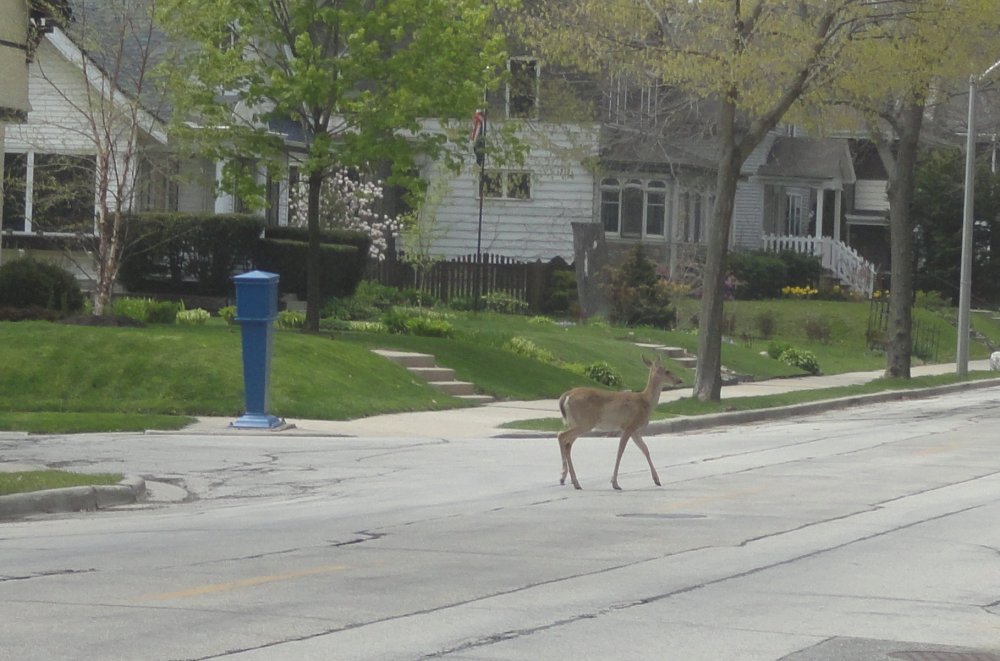
We talk about how things peak and decline. These are often illusions. There really is no such thing as “peak oil” in any practical sense, for example, but we can see peaks in human activities. The U.S. probably reached peak gasoline in 2007, i.e. we will never again burn as much gasoline again. We probably reached peak U.S. CO2 emissions about the same time. Our emissions are generally falling. Today scientists believe we have reached peak farmland, i.e. our footprint on the land will be reduced in the future.
This thanks to improved agricultural productivity. In the not too distant past, farmland under the plow increased in relation to the amount of crops grown. From 1870-1940, for example, the corn harvest closely tracked acres planted. Today we produce five times as much corn each year, but on LESS land. We will ever again plant as much land in corn as we during the 1940s.
The total amount of land planted in crops worldwide continued to rise in recent years because population was growing and the world’s people were improving their diet, i.e. eating more in general and eating more meat. But these trends are slowing too.
Population growth is much slower than it was a generation ago and is expected to slow and maybe even reverse within the lifetime of people already alive today. As for eating more, people’s appetite for more and better food goes up, but then also stabilizes. Although we all know some people who are pushing the limits, eventually there is only so much a person can eat.
We can expect agricultural yields to continue to improve, especially if we can get beyond the troglodyte fear of GMOs. Even w/o this source of improvement, there are lots of things that can be done. I read recently about a lettuce bot that can efficiently weed, thin and pick lettuce. This will improve cultivation techniques, while dispensing with the need for backbreaking labor current applied in the fields.
We can already see the results of more efficient agriculture, although it is so much around us and happened so slowly that we might not notice. In the last century, forests in the Eastern U.S. and Western Europe have returned as cropland no longer needed was recolonized by forests. There is more forest canopy in the Eastern U.S. then there was in 1812. With that has come wildlife. Deer, turkeys and even squirrels were almost extinct in some states a century ago. Today they are common enough to be pests in lots of places. ears are back on our tree farms. Before about ten years ago, they had been absent for a hundred years. I am not sure I am completely happy about their return, BTW. (I prefer not to share my land with dangerous animals. I don’t really think that they would be more afraid of me than I would be of them.) But return they have.
Anyway, the smaller footprint on the land will give us the luxury of small scale organic farming for the upscale markets as well as the capacity to conserve natural areas and better protect soil and water resources. We really need to update our conception. For my entire life we have talked about fragile nature.
It has been a narrative of sad loss. According to this paradigm, each year there was less: less clean water, fewer animals and trees etc. I recall “ecological clocks” ticking inexorably toward a bleak dystopia like those portrayed in movies like “Soylent Green” or “Blade Runner.” But we have turned a corner w/o perceiving it. And we did it by going forward, not backward. Today we have more and better options than we did in 1970, when I first started to worry about these things. It has turned about much better than I thought it would.
In the new paradigm, we need to restore humans in nature. IMO, in the old paradigm there is too much separation. We want to protect nature FROM humans. This follows naturally if you believe in the idea that we are merely trying to slow the inevitable loss. In the renewable and renewed world we live in today, I think it is important for people to understand their integration. I like the idea of community farms, not because I think locovores are more ecologically beneficial (I don’t) but rather because it helps people understand where food comes from.
I also think we need to encourage a new generation of hunters. Hunting is dying out, as the older generation of hunters literally dies out. It would be a good thing if at least some of our calories came from wild game now expanding numbers into our neighborhoods. No matter what, the mind-sets and adaptions of the past fifty years will be increasingly out of date in the next.
Another addition – return of wolves to the Eastern forests.
